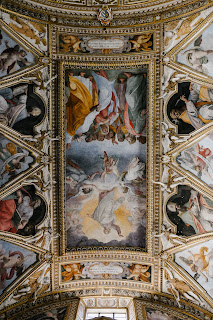Sects of Early Christianity
Christianity began as a small Jewish sect in Judea in the first century, but it quickly spread throughout the Mediterranean world and beyond. As it grew, it developed into a diverse set of communities with different beliefs and practices. Here are four of the most significant early Christian sects:
James and Peter's Sect: This sect, also known as the Jerusalem Church or the Jewish Christians, was centered in Judea and led by James, the brother of Jesus, and Peter, one of Jesus' closest disciples. They believed that only Jews could be Christians and followed Jewish law, including circumcision and kosher dietary restrictions. They also maintained that Jesus was the Messiah promised in the Hebrew Bible. This sect is mentioned in the New Testament book of Acts and was likely the earliest form of Christianity.
Pauline Churches: Paul was a Jewish Pharisee who became one of the most influential figures in early Christianity. He preached to Gentiles and believed that faith in Jesus Christ was sufficient for salvation, without the need for following Jewish law. He established numerous churches throughout the Mediterranean world, and his letters to these communities make up a significant portion of the New Testament. The Pauline churches were characterized by a focus on grace, faith, and the universal nature of Christianity.
Johannine Communities: The Johannine communities, named after the apostle John, were likely founded by one or more of John's followers. They were based in Asia Minor (modern-day Turkey) and emphasized the spiritual nature of Jesus and the importance of love and unity within the community. The Gospel of John, three letters attributed to John, and the book of Revelation are associated with these communities.
Johannite Schism: The Johannite sect was a breakaway group from the Johannine communities, formed in the second century. They believed in a dualistic cosmology, where the material world was seen as evil and the spiritual world was good. Like the Johannines, they were high Christologists, believing that the nature of Jesus was divine, before his earthly incarnation. They also believed in secret teachings passed down from Jesus to John to their leaders. The mainstream church rejected these beliefs, and the Johannites were declared heretical.
These four sects represent some of the earliest and most significant communities within Christianity. While they shared some common beliefs, each also had its distinct characteristics and practices. Their legacies continue to influence Christian thought and practice to this day.




Comments
Post a Comment